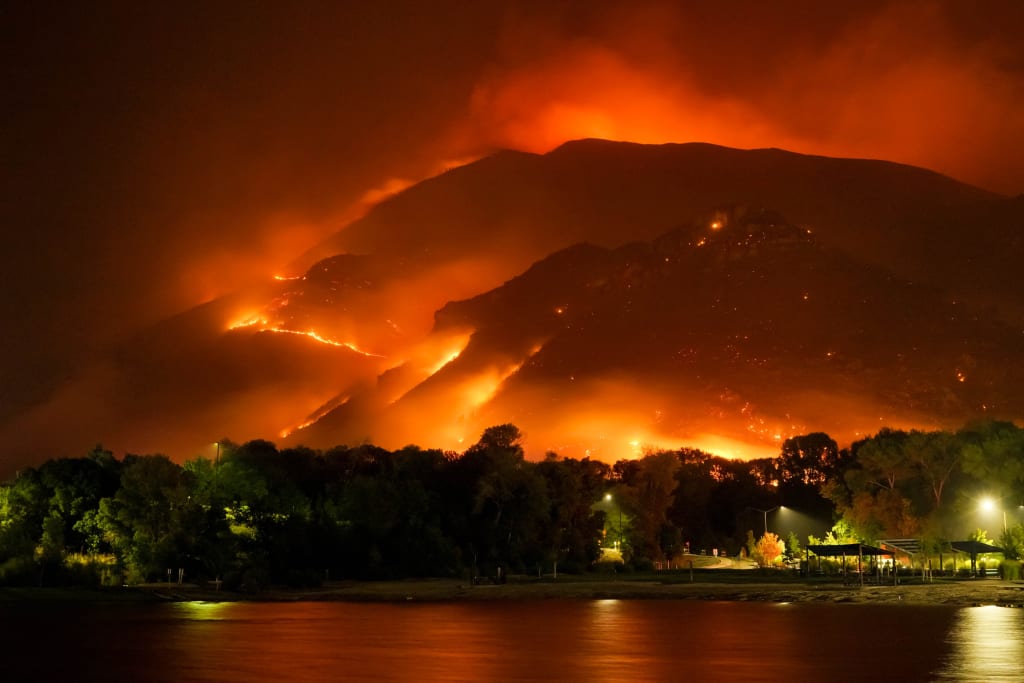The Urgency of Now: Understanding the Accelerating Effects of Climate Change
Edwin J. Gasque

In the face of unprecedented global challenges, climate change stands as one of the most pressing and urgent issues of our time. For decades, scientists have been sounding the alarm bells, warning about the consequences of rising temperatures and changing weather patterns. However, the accelerating effects of climate change demand immediate attention and concerted action from governments, industries, and individuals worldwide. This article delves into the urgency of now, exploring the factors driving the acceleration of climate change and the critical importance of addressing this crisis without delay.
The Science of Acceleration:
Climate change is a complex phenomenon resulting from the interplay of various natural and human-induced factors. Natural processes such as volcanic eruptions and solar radiation fluctuations have historically influenced the Earth’s climate over long periods of time. However, what sets the current era apart is the substantial impact of human activities, primarily the release of greenhouse gases into the atmosphere.
Since the Industrial Revolution, human activities such as burning fossil fuels, deforestation, and intensive agriculture have significantly increased the concentration of greenhouse gases, particularly carbon dioxide (CO2), methane (CH4), and nitrous oxide (N2O), in the atmosphere. These gases trap heat, creating a “greenhouse effect” that warms the planet. As a result, the Earth’s average temperature has risen by approximately 1.2 degrees Celsius (2.2 degrees Fahrenheit) since the late 19th century, with the rate of warming increasing dramatically in recent decades.
The Feedback Loops:
One of the most concerning aspects of climate change is the existence of feedback loops, where warming triggers additional processes that, in turn, exacerbate climate change further. These feedback loops create a dangerous cycle of acceleration, amplifying the effects of global warming.
1. Melting Ice and Albedo Effect: As global temperatures rise, ice sheets and glaciers melt at alarming rates. This reduces the planet’s reflectivity, known as the albedo effect, as darker surfaces (ocean or land) replace the reflective white ice. This change in albedo causes more sunlight to be absorbed, accelerating warming and leading to further ice melt.
2. Permafrost Thawing: In polar regions, the permafrost — an underground layer of soil, rock, and ice that remains frozen year-round — is beginning to thaw. As permafrost thaws, it releases trapped methane, a potent greenhouse gas, into the atmosphere, intensifying the greenhouse effect and driving further warming.
3. Ocean Acidification: The increasing concentration of CO2 in the atmosphere not only warms the planet but also affects the oceans. Oceans absorb a significant amount of CO2, leading to ocean acidification. This acidification harms marine life, particularly coral reefs and shell-forming organisms, with cascading effects on marine ecosystems and coastal communities.

Extreme Weather Events:
The acceleration of climate change is evident in the increasing frequency and intensity of extreme weather events. Heatwaves, droughts, wildfires, hurricanes, and intense rainfall events have become more common and severe in recent years. These events have devastating consequences for human lives, infrastructure, agriculture, and ecosystems, pushing vulnerable communities to the brink.
The Social and Economic Impact:
The accelerating effects of climate change do not discriminate; they impact people of all nations and socio-economic backgrounds. However, it is the world’s most vulnerable populations that bear the brunt of the crisis. The poorest and most marginalized communities, often residing in regions least responsible for greenhouse gas emissions, face the harshest consequences, including food and water scarcity, displacement, and increased health risks.
Economically, the costs of inaction on climate change are staggering. Extreme weather events, such as hurricanes and floods, result in billions of dollars in damages annually. The long-term impact on industries such as agriculture, fisheries, and tourism is projected to be significant, threatening livelihoods and economic stability.
The Role of Political Will
Addressing the urgency of climate change requires strong political will and decisive action. Governments play a pivotal role in setting ambitious climate targets, implementing policies to transition to renewable energy sources, and promoting sustainable practices in various sectors. The Paris Agreement, adopted in 2015, represents a critical step toward international cooperation in combating climate change. However, countries must raise their ambitions and take concrete steps to fulfill their commitments to limit global warming to well below 2 degrees Celsius above pre-industrial levels.
Beyond national governments, local and regional authorities, as well as private businesses, have a crucial role to play. Cities can implement climate-resilient infrastructure and sustainable urban planning, while businesses can adopt eco-friendly practices and invest in renewable energy technologies.

Individual Actions: The Power of Many
While the scale of the climate crisis may seem daunting, individual actions collectively hold immense power. Every person can contribute to climate solutions through conscious choices and advocacy for change. Simple steps such as reducing energy consumption, using public transportation, adopting a plant-based diet, and supporting sustainable products can significantly reduce carbon footprints.
Climate-conscious consumers can also influence industries by demanding environmentally friendly products and holding corporations accountable for their environmental impacts. Grassroots movements and climate activism have proven instrumental in pushing for change and holding governments and businesses accountable for their actions.
Make a change by giving your spare change or whatever you can.
About the Creator
Edwin J. Gasque
“It does not matter how slowly you go as long as you do not stop.” -Confucius.
Making my dreams a reality. I hope to grab the attention of many readers and give them insightful information. I mostly write poems and short stories.






Comments
There are no comments for this story
Be the first to respond and start the conversation.